Google Gemini 3 has dropped – here are 6 prompts that show what it can do
Clever ways to prompt Google’s new AI to get you started
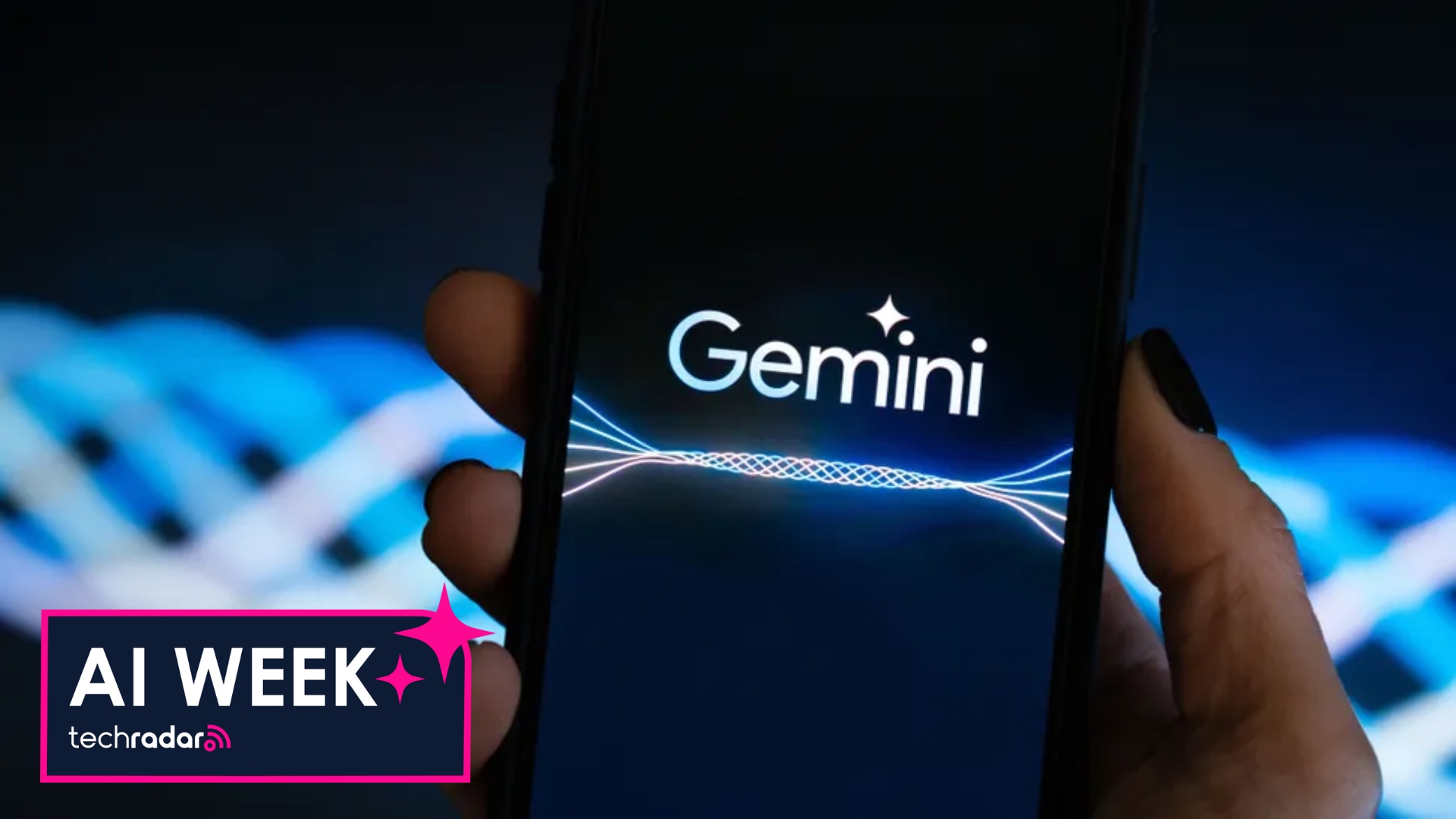
Sign up for breaking news, reviews, opinion, top tech deals, and more.
You are now subscribed
Your newsletter sign-up was successful
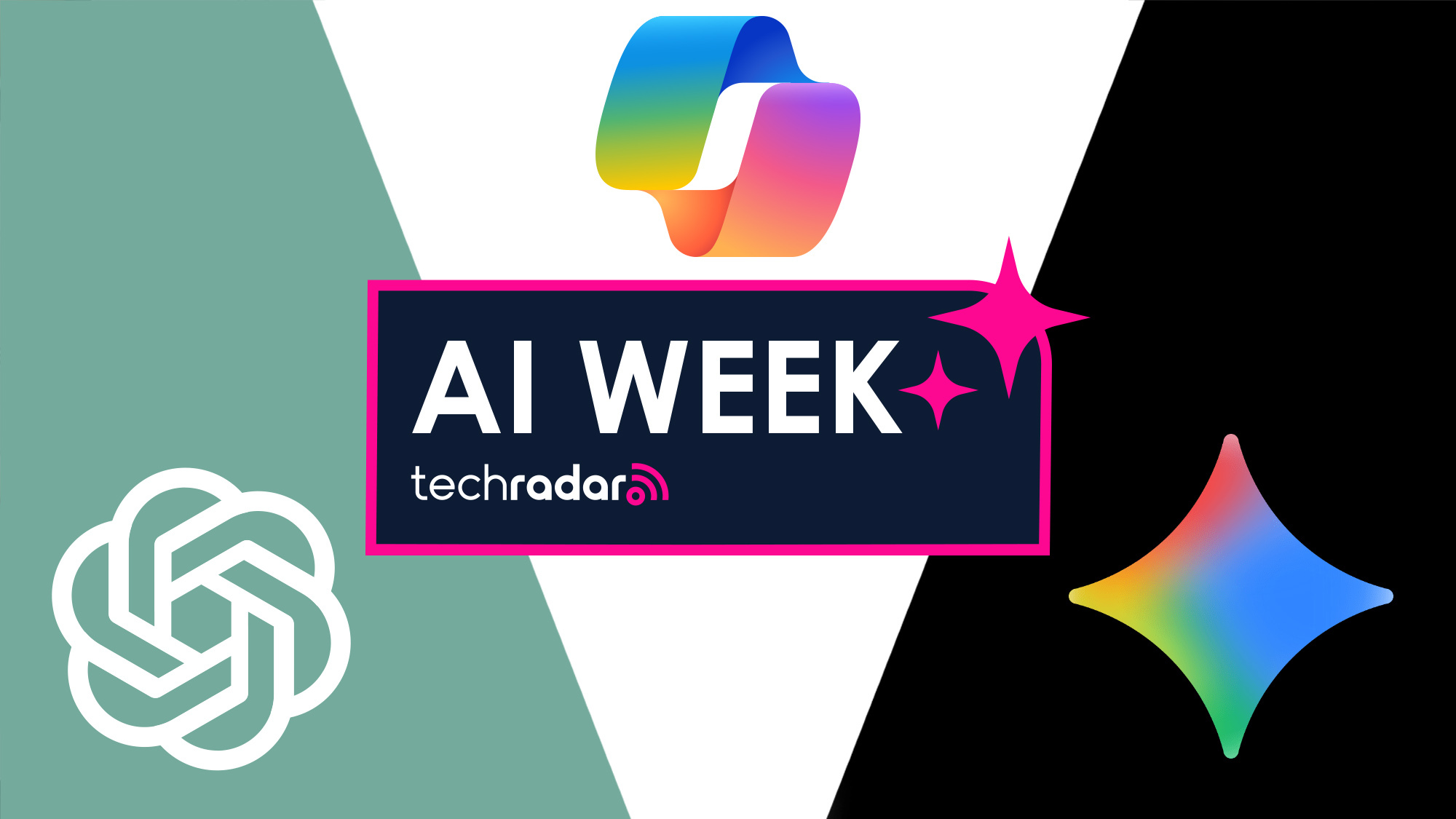
This article is part of TechRadar's AI Week 2025. Covering the basics of artificial intelligence, we'll show you how to get the most from the likes of ChatGPT, Gemini, or Claude, alongside in-depth features, news, and the main talking points in the world of AI.
Google has officially launched Gemini 3, the latest version of its AI model. We’ve been testing it and our first impression is that it’s a big leap forward for the company’s AI tools. This update brings sharper reasoning, stronger multimodal understanding, and a whole raft of features that reshape how Google’s apps, Search, and the Gemini assistant will work day to day.
Alongside the new models, Google has also introduced new AI interfaces and capabilities across its ecosystem. From upgraded Search results in AI Mode to more powerful creative, planning, and research tools inside the Gemini app. It’s a big step toward Google’s vision of a genuinely useful AI layer woven into everything you use.
How you prompt with Gemini has changed too. Google says Gemini 3 is now far better at interpreting messy instructions and breaking down complex tasks on its own. But a few clever prompting techniques still make a huge difference in the results you get. Below, we’ve rounded up six simple prompts straight from Google's announcement that show what Gemini 3 can do and inspire you to create your own.
What is Google Gemini 3?
Gemini 3 is Google’s newest generation of AI models. It's one of the biggest upgrades the company has made to its AI offering. You’ll see it across multiple products immediately, like the Gemini app, Google Search’s AI Mode, NotebookLM and Google’s developer platforms. But it's going to be most noticeable inside Google’s main AI assistant, Gemini.
Gemini 3 brings significant improvements in reasoning, accuracy, and multimodal capability. Which means a whole bunch of things, including that it can process and understand longer, more complex inputs. It can also break big problems into smaller steps, analyze images and videos with more context, and deliver more reliable results.
There are two parts of Gemini 3 you need to know about. Gemini 3 Pro is the main model. The one that powers the Gemini app, Google Search’s AI Mode, and Google’s more consumer-facing features. There's also Gemini 3 Deep Think, a reasoning mode designed for tougher, multi-step problems. It’s currently in testing and will be aimed at advanced users.
Google has also introduced new capabilities built around the model, including more agentic behaviour. Which means Gemini will be able to plan multi-step actions, handle longer workflows, and operate with more autonomy when asked.
Sign up for breaking news, reviews, opinion, top tech deals, and more.
6 prompts that show what Gemini 3 can do
Planning a trip
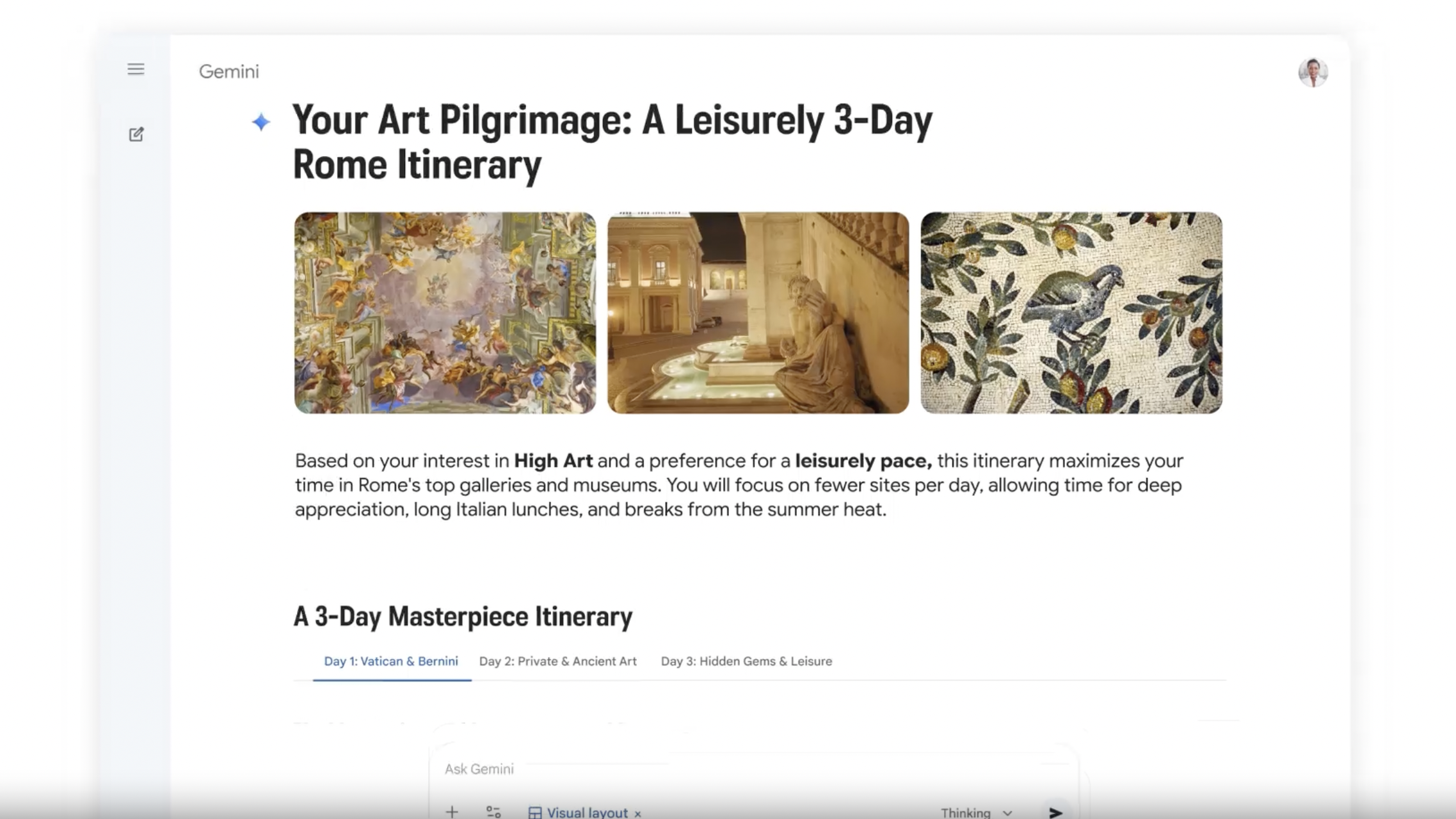
Prompt: Help me plan a 3 day trip to Rome next summer.
Gemini 3 has added 'generative interfaces'. They're essentially magazine-style summaries complete with pictures, photos and modules.
The example Google gives is asking Gemini to plan a trip and it then serving up an itinerary in this style, which we think looks great. But it'll also aim to find out more about what sort of pace you want from your trip, the kinds of sights you want to see, and other details before it creates it.
In Google's screenshot above, you can see Gemini hasn't just served up general information about Rome, but has tailored it to the user, calling it an "Art Pilgrimage" with specific recommendations.
Learning a topic
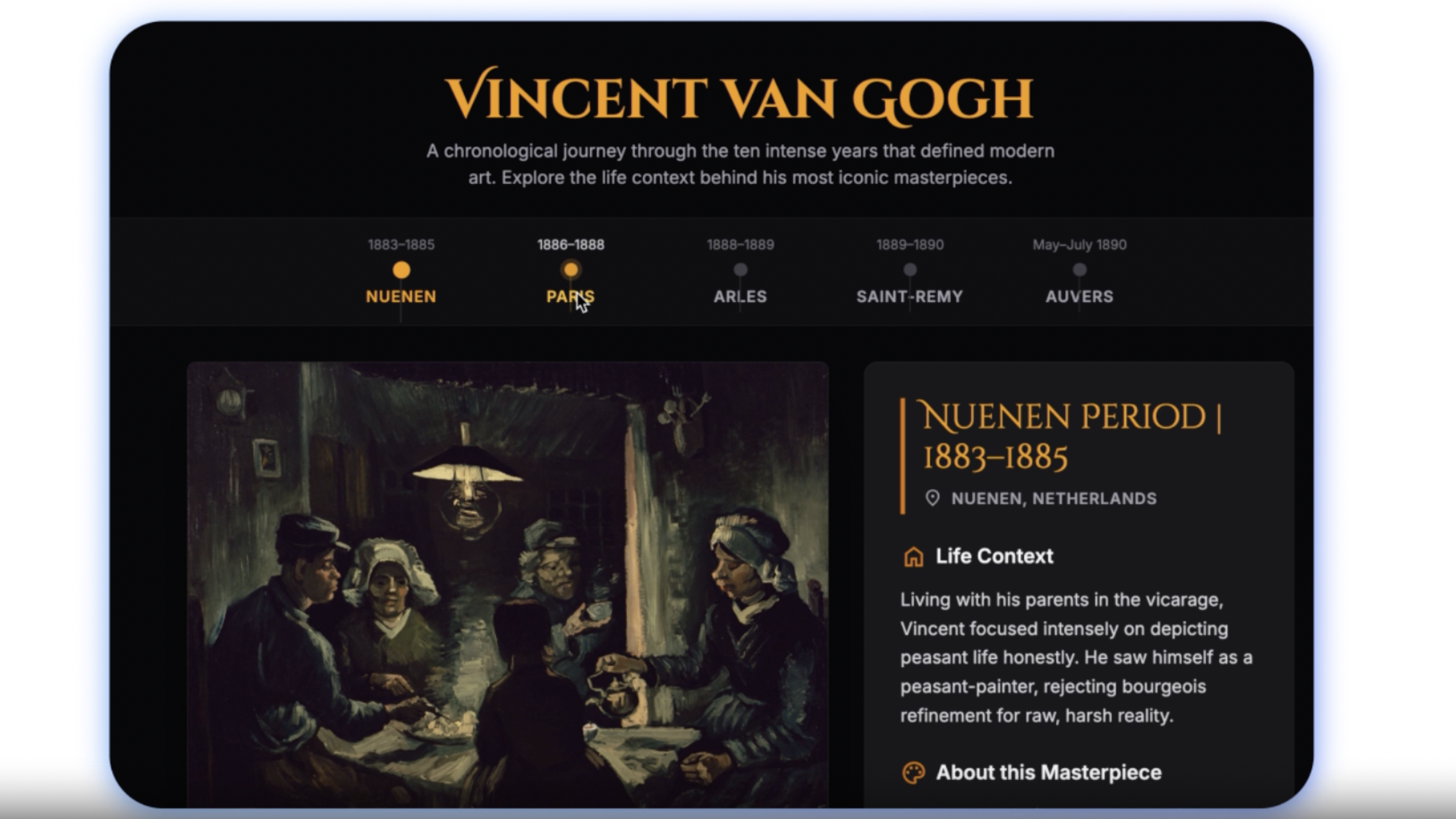
Prompt: Create a Van Gogh gallery with real life context for each piece.
In the trip planning example above, we saw what Gemini can do with a 'generative interface' in a visual layout. But it can also create a dynamic layout. So rather than a nice-looking magazine, think a custom interface that you can actually interact with.
We've included Google's prompt above, but you can get creative here as a way to really accelerate your learning about a subject.
This approach actually uses Gemini 3's agentic capabilities, meaning rather than you having to tell it do loads of different things, it figures out all of the steps itself needed to get something done.
Visualizing big concepts
Prompt: Help me understand solar eclipses with diagrams and interactive sections
This isn’t an official Google example, it’s a use case for Gemini’s dynamic layouts that I think will be incredibly helpful, especially for students, researchers, or anyone who learns visually.
The Van Gogh demo is impressive, but the real power of this feature will shine with complex concepts and hard-to-visualize lessons. Physics, space, scientific theory, these are the kinds of topics people will want transformed into a dynamic, interactive interface they can actually explore.
Breaking down complex structures
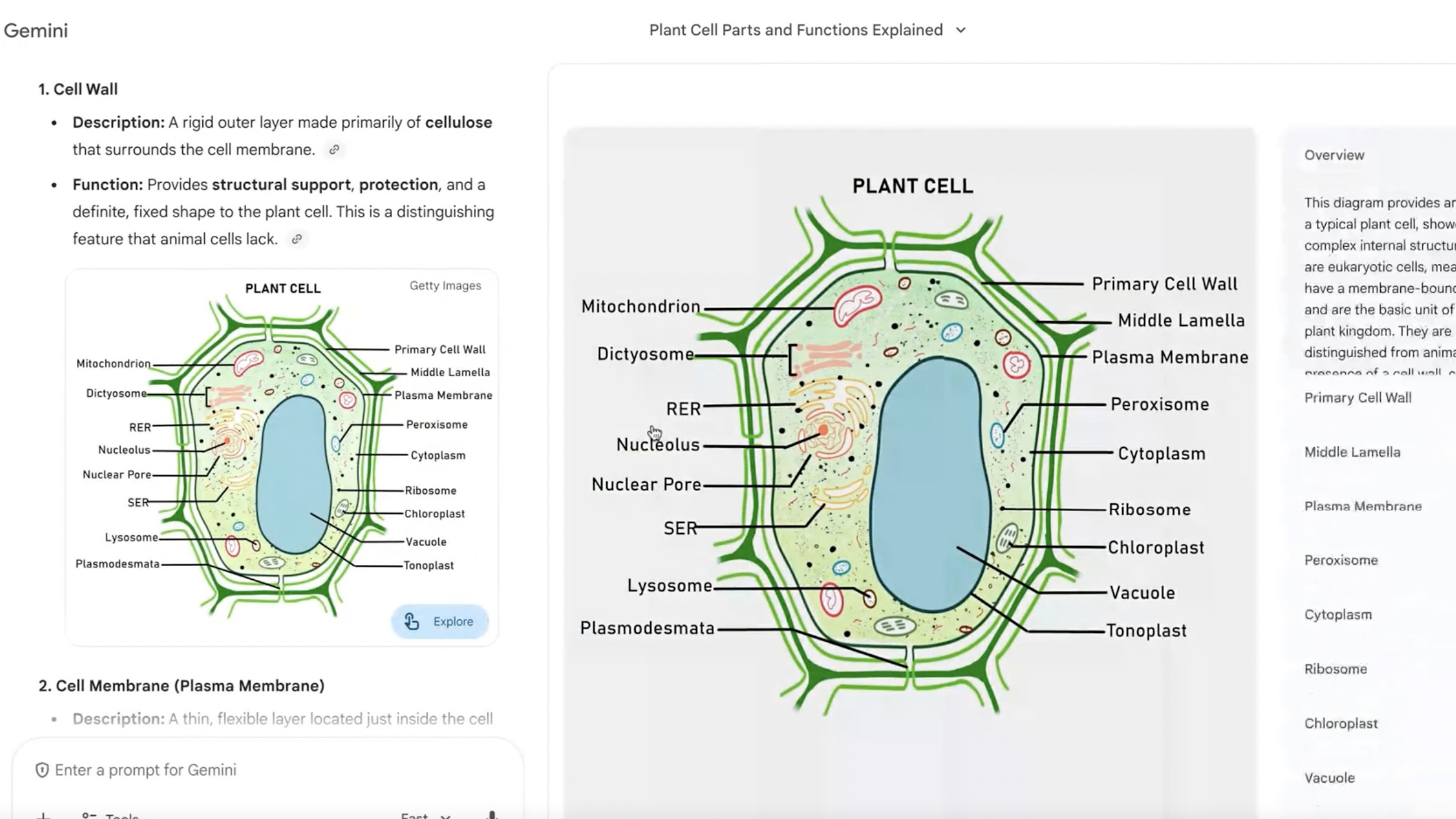
Prompt: What are the parts of a plant cell?
Where the previous example focuses on visualizing big, abstract concepts, this one from Google's demo shows how Gemini 3 can help with detailed, structured topics that require clear, interactive diagrams and images.
Ask Gemini to build an interactive layout that includes a labelled diagram of a plant cell that's fully interactive. So you can zoom in to view each component and see explanations of what each part does. It’s perfect for students, teachers, or anyone learning biology who benefits from clean, accurate visuals and bite-sized definitions.
Getting organized
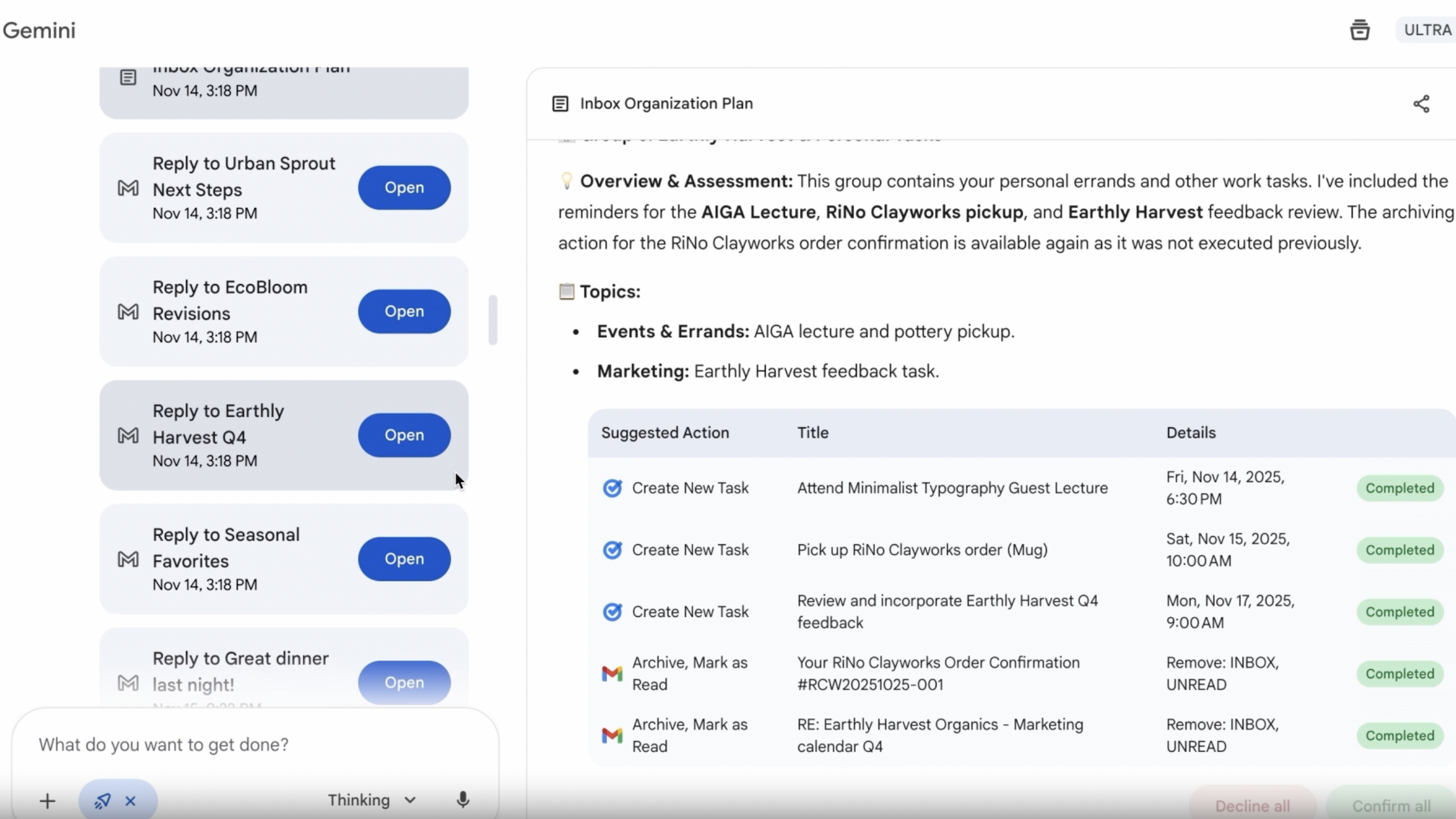
Prompt: Help me organize my inbox
Another prompt directly from Google's demos that looks achingly simple but yields great results. Now, the key to this one is you need to go and select 'Agent' from the dropdown menu in Gemini.
Gemini Agent is still described by Google as an "experimental feature" but it's very cool because it basically takes a task and breaks it down into a whole bunch of steps before beginning on them all.
You'll get the best organization benefits if you ensure it's connect to your Google apps. That way it can wrangle your inbox, manage your calendar, add reminders and loads more.
Handling logistics
Prompt: Research and help me book a mid-size SUV for my trip next week under $80/day using details from my email.
We like this prompt suggestion from Google because it shows that Gemini's agentic AI capabilities aren't just about making you more productive with work. They can help you with all sorts of overwhelming logistical planning in your personal life, too.
With just a simple prompt about a trip, for example, Gemini can carry out a whole bunch of tasks right away, like locating travel information, comparing rentals within a budget and preparing a booking. It's similar to the trip planning visual layout above, but it's less "here's what you could do" and more "let's get stuff done."
Follow TechRadar on Google News and add us as a preferred source to get our expert news, reviews, and opinion in your feeds. Make sure to click the Follow button!
And of course you can also follow TechRadar on TikTok for news, reviews, unboxings in video form, and get regular updates from us on WhatsApp too.
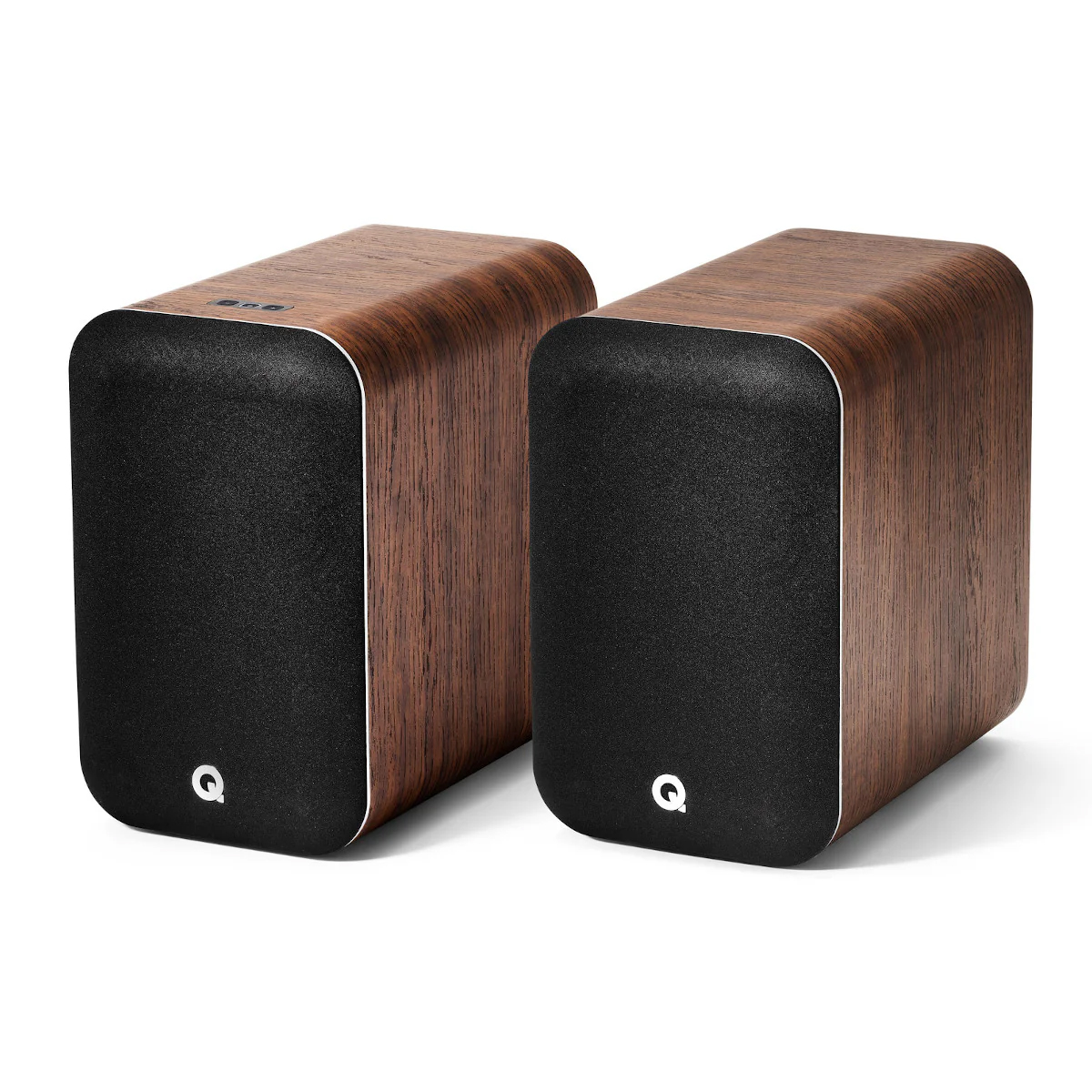
➡️ Read our full guide to the best stereo speakers
1. Best overall:
Q Acoustics M40 HD
2. Best compact:
Dali Rubikore 2
3. Best desktop speakers
Creative Pebble Nova
4. Best budget buy:
Q Acoustics M20 HD

Becca is a contributor to TechRadar, a freelance journalist and author. She’s been writing about consumer tech and popular science for more than ten years, covering all kinds of topics, including why robots have eyes and whether we’ll experience the overview effect one day. She’s particularly interested in VR/AR, wearables, digital health, space tech and chatting to experts and academics about the future. She’s contributed to TechRadar, T3, Wired, New Scientist, The Guardian, Inverse and many more. Her first book, Screen Time, came out in January 2021 with Bonnier Books. She loves science-fiction, brutalist architecture, and spending too much time floating through space in virtual reality.
You must confirm your public display name before commenting
Please logout and then login again, you will then be prompted to enter your display name.